
The Australian and New Zealand dollars held steady on Wednesday as the dollar gave up some of its recent gains, having earlier hit fresh one-week highs and looking set to extend their gains into a fourth trading day.
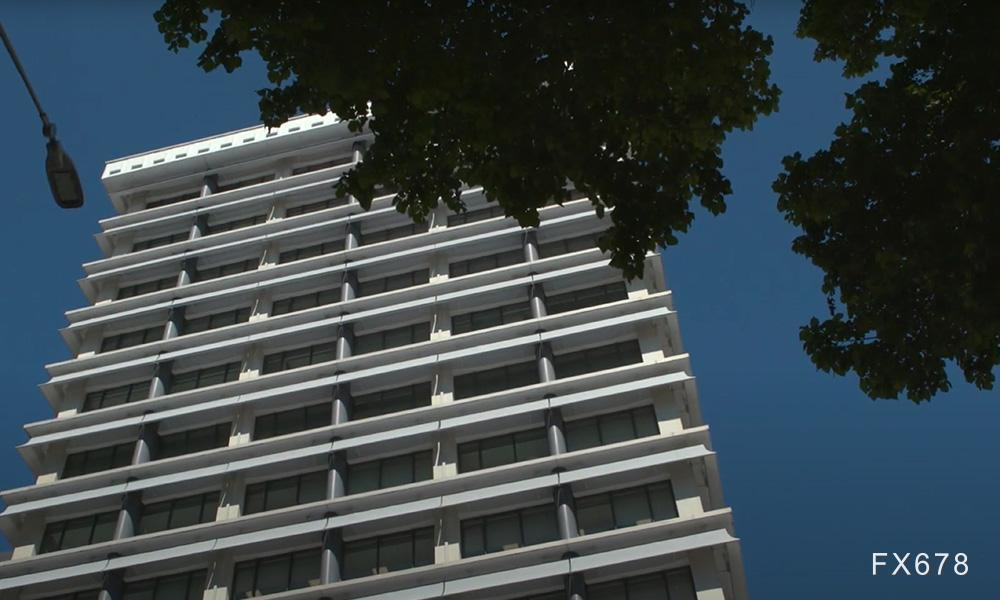
The dollar's rally has paused as markets await who President-elect Trump will pick as Treasury secretary and how likely that candidate is to push ahead with Trump's sweeping tariff and tax proposals.
The Australian dollar continues to draw some support from a steady rate outlook after minutes from the RBA's last meeting showed the bank remains wary of upside risks to inflation.
"RBA rhetoric continues to be hawkish compared to macro data and global peers, but we expect a shift to a dovish stance in future communications," analysts at JPMorgan wrote in a note. "We continue to forecast the first rate cut in February, though it's important to note that this is a close call as decisions are highly data dependent."
Markets are implying only a 37% chance of a cash rate cut to 4.35% in February and a 58% chance of a cut in April, with a 25 basis point rate cut not fully priced in until May.
The next important economic data is October's CPI, due on November 27, which is expected to fall again after a sharp drop to 2.1% year-on-year in September.
The average measure of core inflation slowed to 3.2% in September and is likely to reach the upper end of the RBA's 2%-3% range in October.
The Reserve Bank of New Zealand meets next week and investors believe the bank will cut its 4.75% cash rate by 50 basis points, bringing it below Australia's rate.
The market also sees an 84% chance of another 50 basis point cut in February, taking rates close to 3.25% by the end of next year.
Earlier this year, the Albanese government, the Australian prime minister, put forward a controversial proposal to cap the number of international students in Australian universities, limiting the number of new international students to 270,000.
This move is aimed at restoring the number of temporary immigrants to pre-pandemic levels and cracking down on improper educational institutions.
However, once the proposal was put forward, it sparked widespread discussion and controversy.

But...by noon today, various media reported that this restriction bill has definitely died!
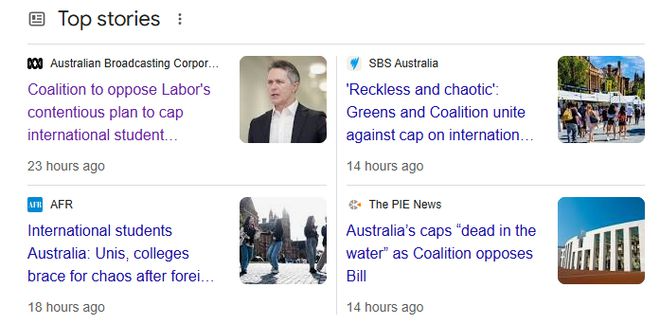
Yes, the progress of this bill has not been smooth.
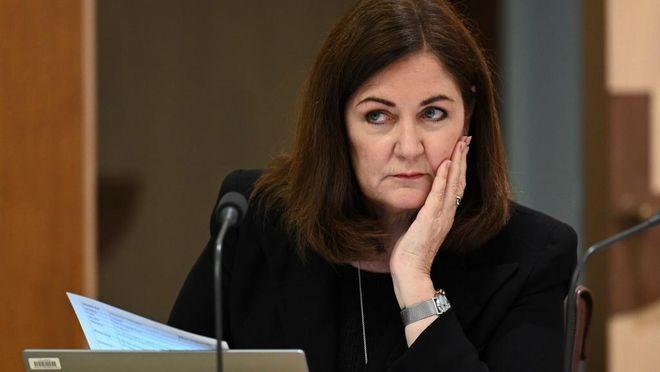
As the January 1, 2025 deadline approaches, the Australian Parliament has only two weeks left to review the bill. During this period, that is, within 24 hours, the Australian Coalition Party has made it clear that it will vote against it, believing that the bill is "chaotic and confusing" and cannot effectively solve the current problems.
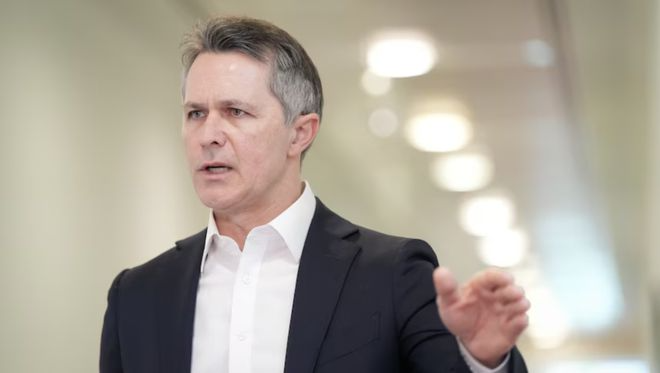
Just yesterday, the Coalition's education spokesperson Sarah Henderson, the Department of Home Affairs spokesperson James Paterson, and the Department of Immigration spokesperson Dan Tehan issued a joint statement:
There are various problems with the new education bill,
The Coalition cannot support this decision!
The good days of Chinese students are back!
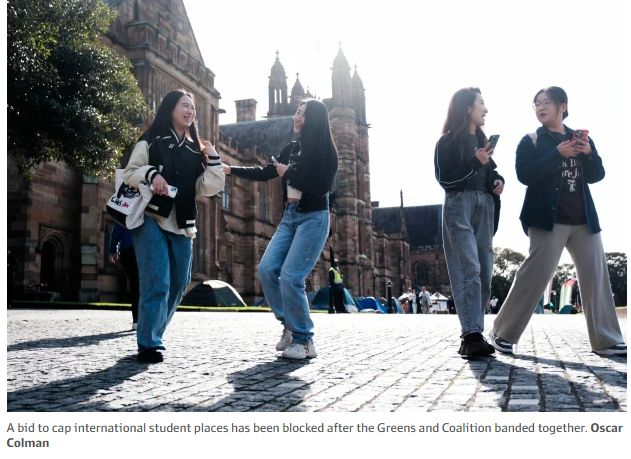
The Coalition's education spokesperson Sarah Henderson, home affairs spokesperson James Patterson and immigration spokesperson Dan Tehan pointed out in a joint statement that the cap measures proposed in the bill will not solve the fundamental problem at all, but may exacerbate the crisis caused by the government itself.
They said that they could not support these measures that would only exacerbate the problem.
At the same time, the Green Party has long opposed the bill.
Green Party higher education spokesperson Mehlin Farooki described the bill as "immigration bill disguised as education policy" and pointed out that the Labor Party's restrictive policy on international students is doomed to fail.
The opposition of the two major parties means that the implementation of this bill is hopeless, and Chinese people are also hotly discussing it!

At noon today, the Australian authoritative media AFR also confirmed it! It’s over!
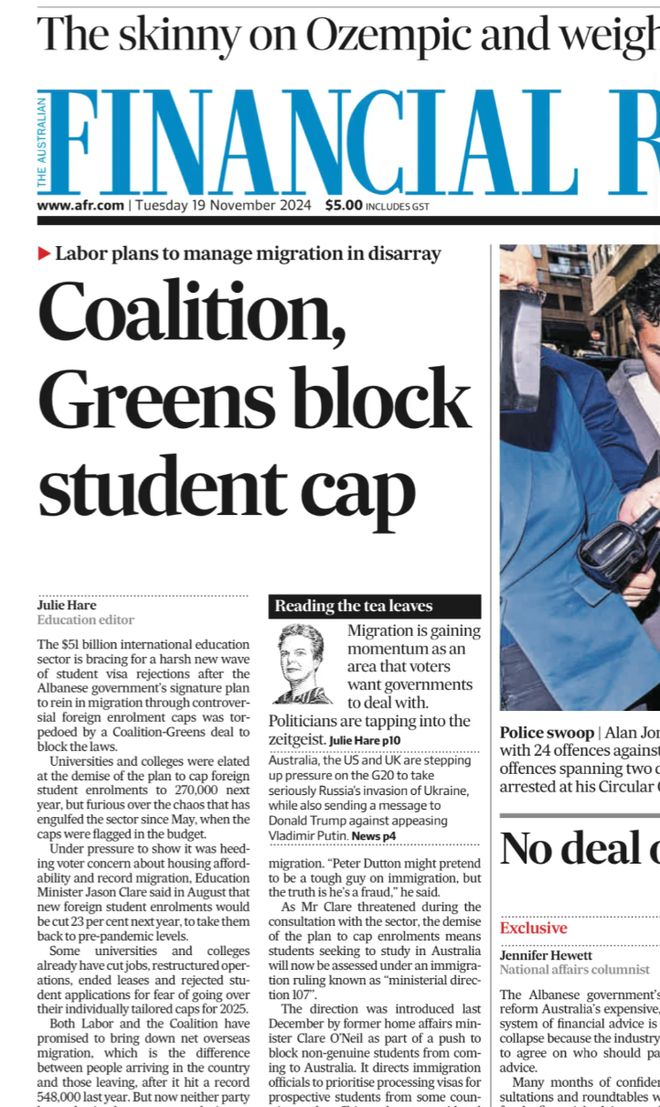
It is worth noting that some Coalition politicians, including Coalition leader Peter Dutton, had previously expressed support for student number limits. However, with only a few weeks left before the measure came into effect, they suddenly changed their stance, a change that triggered a harsh response from Education Minister Jason Clare.
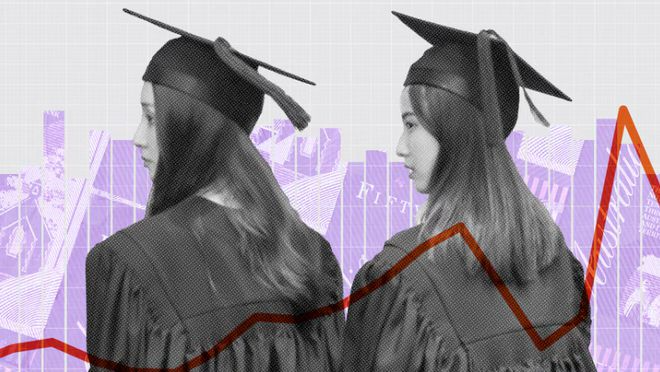
Clare accused the Coalition's decision to block the bill of destroying Dutton's credibility on immigration and criticized him for being soft on immigration.
Green Party's long-term opposition: the rationale for the bill to be repealed
The Green Party has long opposed the bill, and higher education spokesperson Mehreen Faruqi called it "an immigration bill disguised as an education policy."
Faruqi said in a statement that it was only right that Labor's reckless and chaotic policy of capping the number of international students was finally repealed, which was exactly the way policy making should not be done.
The Green Party's position further consolidated the rationale for the repeal of the bill on the number of international students.
Ministerial Directive 107 continues to take effect: the Big Eight Alliance claims victory
If the bill does fail to pass Parliament by the end of this month, a controversial regulation known as "Ministerial Directive 107" will continue to be effective.
The directive has been in effect since December last year and requires immigration officials to give priority to applications from students from low-risk schools.
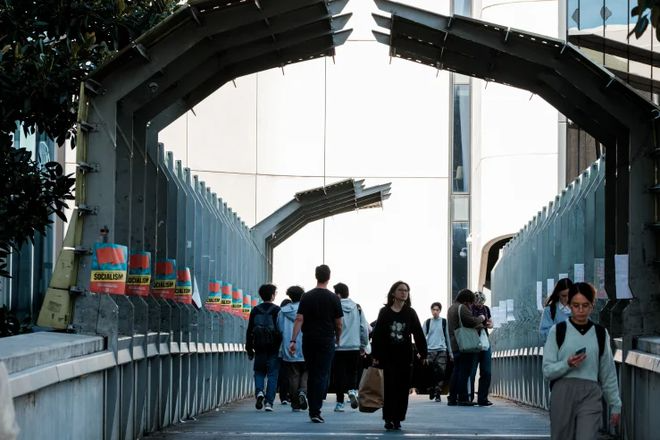
Image source:brisbanetimes.com.au
This means that larger, more prestigious universities are able to recruit more international students, while smaller, regional universities face greater challenges.
However, Vicki Thomson, CEO of the Group of Eight, which represents Australia's most prestigious universities, said the Coalition's decision to block the bill was a win for both the economy and common sense.
She pointed out that it was unfair for international students to be blamed for everything from the housing crisis to the rising cost of living.
The bill was originally intended to weed out informal and unreliable educational institutions, but it poses a real threat to Australia's most successful export service, international education, which is worth A$51 billion.
The latest news hotspots between China and Australia,
Party differences and net immigration targets
It is worth noting that while both major parties have said they want to see Australia's net overseas migration figures lower, their targets are significantly different.
The Labor government expects net immigration to reach 260,000 in fiscal 2024, while Opposition Leader Peter Dutton has said his party's goal is to keep the number to about 160,000.

University admissions chaos and uncertainty
Against this backdrop of policy uncertainty, Australian universities have also fallen into admissions chaos.
Some universities have continued with 2025 admissions, while others have suspended international student applications.
The peak university body said the lack of clear policy guidance has caused chaos across the industry as educational institutions need to determine their budgets by the end of the year.
Vicky Thomson, CEO of the Group of Eight, pointed out that the law has not yet been introduced, and educational institutions have the right to issue admission notices and students have the right to accept them. However, some of the indicative figures provided by the government are meaningless because they are not laws.
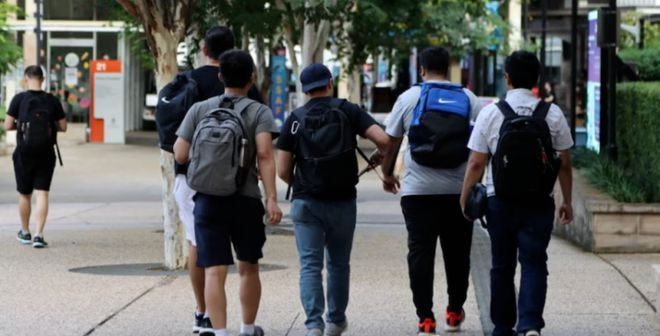
She said there was no clear answer as to whether the law would have retroactive effect if universities enrolled more students than the legal cap that was eventually passed.
According to Ms. Thomson, the member universities of the Group of Eight had issued about 50,000 admission offers in August.
Facing an uncertain future, universities have taken different approaches to managing enrollment.
For example, the University of New South Wales has suspended applications and introduced admission rounds and a waiting list system; while the University of Melbourne has said it will continue to issue admission notices to international students.
However, at present, the termination of the bill means that Chinese students, etc., can enter Australia without too many restrictions! What good news!
What do you think of this bill?
Faced with the above bill
Many Chinese students in Australia are talking about it
Australian media reported that Chinese student Kepuyan Wu said that the federal government should spend more time developing the Australian economy instead of "blaming foreign students for the housing crisis."
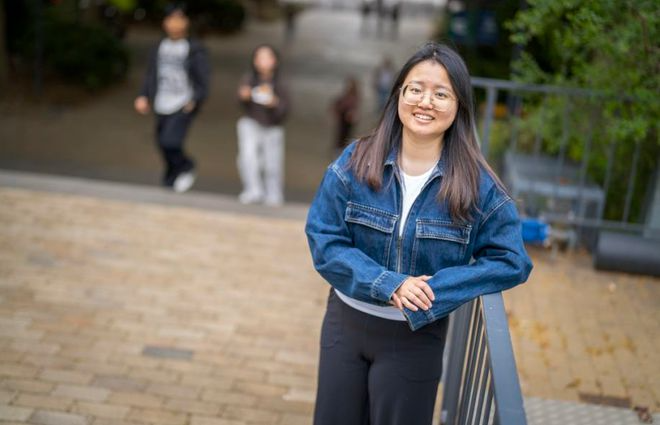
(Photo: AFR)
The 23-year-old, who grew up in Xi'an, China, is studying a Master of Journalism at the University of Melbourne and particularly enjoys the practical aspects of the course, such as learning how to record and edit audio and video content.
Wu came to Australia after graduating from Lanzhou University last year with dreams of working in the media industry. Wu said that in general, Chinese students consider Australia to be the third most desirable place in the world for higher education, behind the United States and the United Kingdom, and ahead of Canada, Japan and European countries.
She added that the QS World University Rankings was a key indicator, with the University of Melbourne ranked as the best university in Australia, rising from 14th to 13th in the world this year.
The University of Sydney ranked second in Australia and 18th in the world, followed by UNSW (19th). The University of Melbourne also ranked first in the Times Higher Education rankings, followed by Monash University, the University of Sydney, ANU, UQ and UNSW, all in the top 100 worldwide.
However, Wu believes the Albanese government has made a key mistake in limiting the number of foreign students to solve the housing crisis.
"The government should focus more on economic development rather than blaming international students for the housing crisis," Wu told The Australian Financial Review.
"Most students just live in the city center, but housing shortages are everywhere. I feel we are being sacrificed by the government's goals."
"Universities also admit that they rely on our high tuition fees to conduct research, and unless the government invests more money in this area, the universities will not be satisfied."
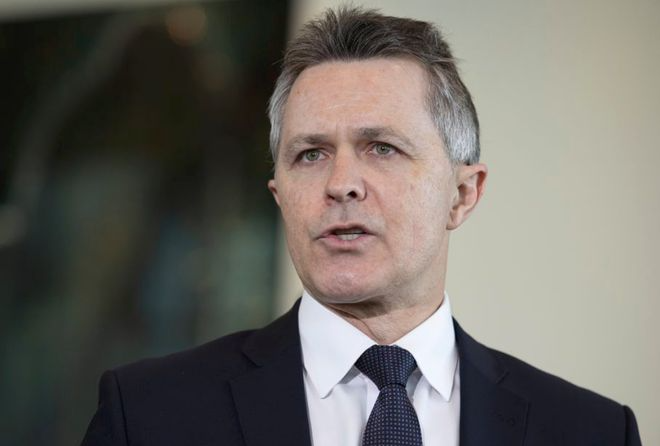
Australian Education Minister (Photo: AFR)
Labor was committed to limiting overseas immigration before the election. The Coalition has not yet revealed whether it supports the bill, but if it does, it will help the opposition achieve its more aggressive goal of reducing immigration.
Despite feeling the pinch of living costs - her student accommodation bill increased by $30, or 5%, to $579 a week this year - Wu still likes life in Melbourne and the opportunity to meet other foreign students from Malaysia, Japan and India.
Wu, 23, hopes to find a job and continue living in Australia on a temporary visa after graduation. "I have had a great experience that exceeded my expectations," she said, adding that although Australian universities have a high reputation overseas, many Chinese students believe they are easier to get into than institutions in the United States and Britain.
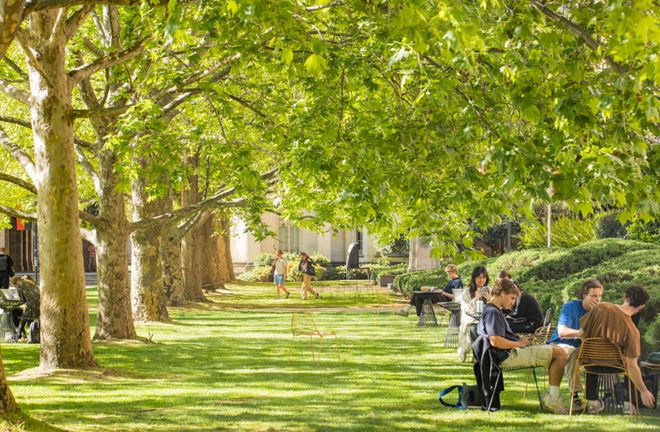
(Photo: AFR)
Interestingly, she said that if foreign students are restricted from applying, it may change Chinese students' views on Australian universities because it becomes more difficult to get in.
This view is also shared by her classmate, 24-year-old Chinese student Jining Wen. He believes that increasing the competition for admissions will enhance the reputation of Australian degrees in China.
"I think setting a registration cap is a good thing. It raises the threshold for selecting international students, which can increase the value of the degree," he said.
"In my country, people think that Australian universities are relatively easy to apply for, but difficult to graduate." Wen said that a key difference between Chinese and Australian higher education is that the former places more emphasis on the final homework or exam results, while the latter is assessed more evenly throughout the course.
Like Wu, he receives financial support from his parents, but also works part-time as a waiter to pay the A$370 weekly rent for a shared apartment.
"I can't survive in Australia without my parents' support," Wen said. "The cost of living here is too high for international students."
"Unfortunately, there are a lot of homework during the semester and my priority is studying, so I don't have much time to work part-time."
Yuzhe Zhou, another Chinese student studying for a master's degree in computer science at the University of Sydney, believes that most Chinese students in Australia are financially supported by their parents.
Zhou does not share Wu's concerns about the federal government's enrolment cap, but agrees that the move may improve the reputation of Australian universities in China because it is more difficult to get into the university.
The 25-year-old student believes that Australia is highly regarded globally for its natural beauty, high wages and excellent quality of life. But according to Zhou, in the Chinese job market, some employers look down on Australian degrees because of the shorter study time, calling them "water masters", meaning that the academic value is low and superficial.
People's Daily Online, Adelaide, November 14 (Wang Quanjiao) The giant pandas "Wang Wang" and "Fu Ni", who have lived in Australia for 15 years, will return to China early on the morning of the 15th. In the afternoon of the 14th, the Chinese Consulate General in Adelaide and the Adelaide Zoo jointly hosted a farewell event for the giant pandas.


Giant pandas "Wang Wang" and "Fu Ni" have lived in Australia for 15 years (Photo courtesy of Adelaide Zoo)
In 2009, China and Australia launched cooperation in giant panda protection and research. "Wang Wang" and "Fu Ni" moved from the Wolong Giant Panda Research Center in Sichuan to the Adelaide Zoo in South Australia (SA), Australia, and settled down there, becoming the only pair of giant pandas in the Southern Hemisphere. Over the past 15 years, China and Australia have achieved positive results in giant panda protection, disease prevention and control, and disease diagnosis and treatment. The pair of giant pandas is also deeply loved by South Australian residents and tourists from all over the world.
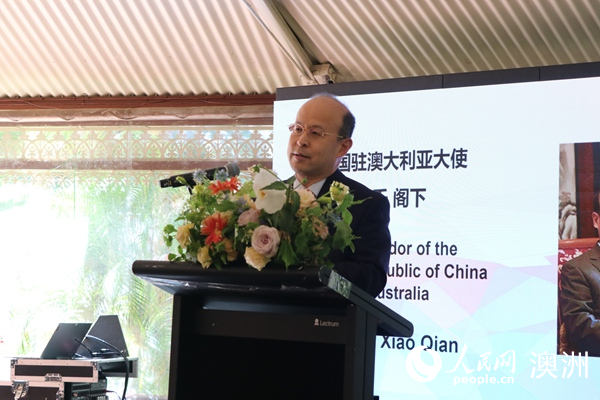
Chinese Ambassador to Australia Xiao Qian attended the event and delivered a speech (Photo by Wang Quanjiao)
Chinese Ambassador to Australia Xiao Qian said in his speech at the event that giant pandas, as friendly envoys, convey the warmth and goodwill of the Chinese people, sow the seeds of peace and friendship, and arouse emotional resonance beyond national boundaries. "Wang Wang" and "Fu Ni" have become symbols of the deep friendship between the Chinese and Australian people for 15 years. China and Australia are about to start a new round of giant panda cooperation, which will further enhance the friendly feelings between the two peoples and inject new vitality into the people-to-people exchanges between the two sides.
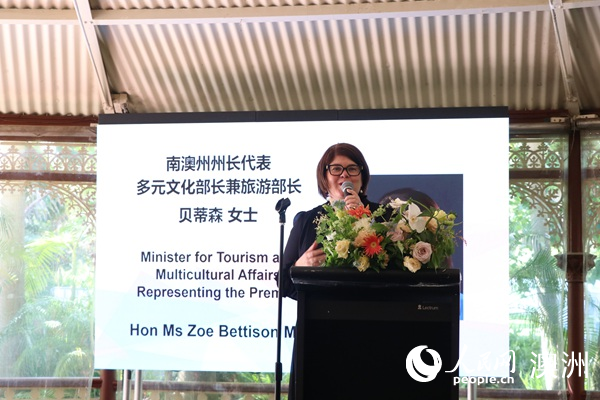
Zoe Bettison, representative of the South Australian Premier, Minister of Multicultural Affairs and Minister of Tourism, delivered a speech (Photo by Wang Quanjiao)
Zoe Bettison, representative of the South Australian Premier, Minister of Multicultural Affairs and Minister of Tourism, said at the event that the arrival of "Wang Wang" and "Fu Ni" has strengthened the Australian public's attention to the protection of giant pandas, especially for the younger generation. The giant panda symbolizes the friendship between Australia and China, and Australia will continue to cooperate with China in the protection of giant pandas.
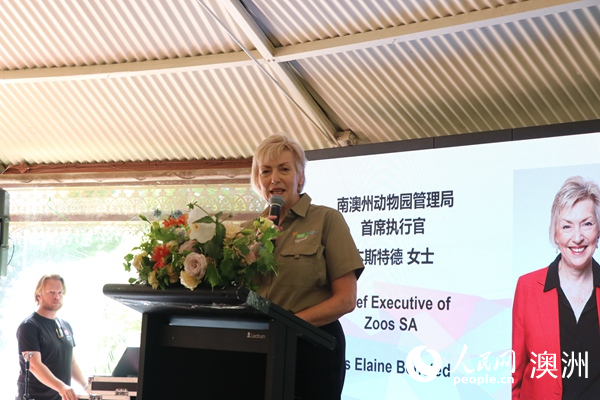
Elaine Benstead, CEO of the South Australian Zoo Association, delivered a speech (Photo by Wang Quanjiao)
Elaine Benstead, CEO of the South Australian Zoo Association, reviewed the 15-year life of Wang Wang and Fu Ni in South Australia. She said that the two giant pandas have always been very popular in the Adelaide Zoo, have become part of the local community, and promoted the friendship between South Australia and China.
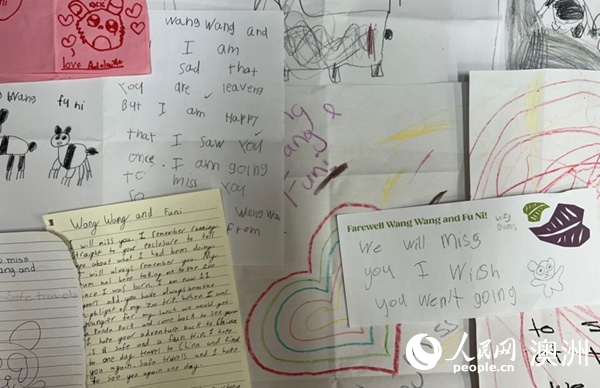
Handwritten farewell letters from tourists to the giant pandas Wang Wang and Fu Ni (Photo courtesy of Adelaide Zoo)
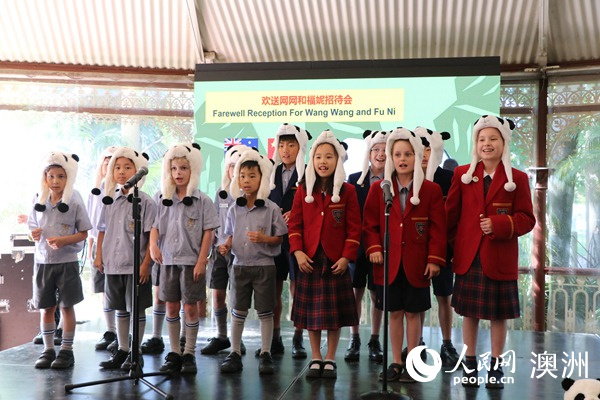
Adelaide local students sang to bid farewell to "Wangwang" and "Funi" (Photo by Wang Quanjiao)
At the end of August, Australian Education Minister Jason Clare announced Australia's international student quota policy, which aims to improve the sustainability of international education in Australia.
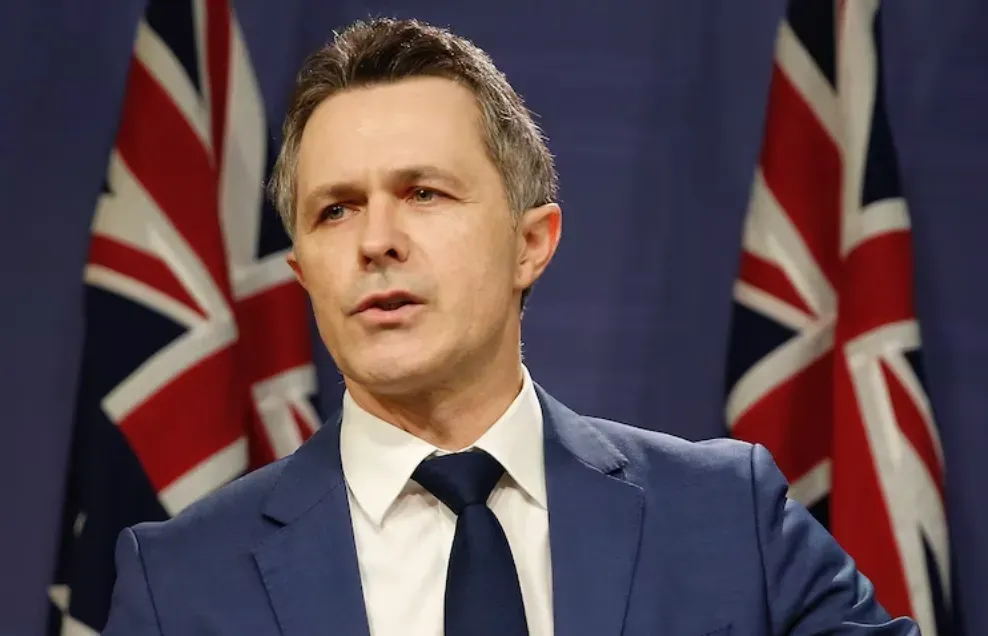

Under the officially announced National Planning Level(NPL) program, the federal government caps international student enrollment at 270,000 in 2025, and each university will be set a quota (no more than 40% of the total student body).

Other qualification levels, such as primary and secondary schools, research programmes, independent language programmes, non-qualification programmes and students supported by government scholarships are not included in this cap.

The National Planning Level(NPL) program has quotas allocated as follows:
The total quota for higher education public universities is 145,000 students, and each school will have a separate quota. When setting quotas, the government takes into account the number of new students at the school in recent years, as well as the proportion of international students in the total student body.
Other universities or non-university institutions of higher education are allocated a total quota of 30,000 students.
● The total quota for vocational education VET2025 is 95,000 students.


01
What will be the impact of the quota plan?
Clare said universities had now been told "indicative levels" for 2025, which would be finalised in the next two weeks.
He also pointed out that following the international student cap directive issued by former Home Affairs Minister Clare O 'Neil, the "Group of Eight" and vocational education and training providers, which are popular with international students, would bear most of the student cuts.
The much-anticipated move comes amid widespread criticism from the Australian education industry, which believes a decline in international enrolment will have a negative impact on the Australian economy.
However, Clare said the policy would strengthen the integrity of the sector and reduce the "scams" that have resulted from the sharp rise in international students in the wake of the pandemic.
Data for the year to May 2024 shows total international student enrolment in Australian universities and vocational education and training courses was 810,960 (a 17 per cent increase on the 2019 pre-pandemic figure), while the number of graduates also increased by 16 per cent to 289,230 over the same period.
At the same time, the government is also under pressure to reduce net overseas migration from 528,000 in 2022-23 to 260,000 this financial year.

02
Student visa application fees will also be doubled
In addition, from July 1 this year, the government also doubled the application fee for a student visa from $710 to $1,600. Clare says it's also a way to raise revenue for education programs.
While the Coalition supported the cap, opposition education spokeswoman Sarah Henderson and immigration and citizenship spokesman Dan Tehan accused Labor of mismanaging the area.
"We remain deeply concerned about the severe economic damage Labour has inflicted on regional and small universities and private higher education institutions," they said in a joint statement.
International education contributed $36.4 billion to the Australian economy in 2022-23, making it the country's fourth largest export industry that year.

03
Preparing to study in Australia how to land smoothly?
01
Plan early, apply early
Australian universities start twice a year, and the application deadline will be advanced at any time according to the number of applications.
Students are advised to submit their applications, receive conditional offers, and begin purposeful language learning and testing as soon as they receive their grades for 5-6 semesters. After submitting the application and obtaining the student ID of the school, students will be notified of any changes in the school's policies or courses by email at any time, which can be flexibly adjusted according to the policies.
If you wait until all the materials are complete and the language is up to submit, you may face the application deadline or miss the payment cycle. Many quota courses at the University of Sydney in '24 filled up early, and applications for the University of Melbourne in' 25 closed early, leaving many students regretting it.
02
Select colleges and majors based on multiple indicators
Starting from the degree level and course type of studying abroad:
Students applying for undergraduate and taught master's degrees can focus more on teaching and employment-related indicators; Students applying for advanced research degrees, such as master's and doctoral degrees, should pay attention to research related indicators.
Is there an immigration plan:
If students are concerned about employment or have immigration plans, they need to pay more attention to employment indicators.
Both comprehensive ranking and professional ranking:
It is recommended that students and parents planning to study in Australia, in addition to referring to the comprehensive ranking, also need to pay attention to the subject ranking of the major they plan to study.
03
Attach importance to visa materials
Since the second half of 23, Australia has introduced a number of policies aimed at maintaining the healthy and sustainable development of international education. For small partners, getting the Offer and COE (admission confirmation) of the dream school is only the first half of the study abroad planning, and the visa is also crucial.
A series of reforms to the 24-year visa policy, including the focus of assessment, the amount of guaranty money, language requirements and visa fees increases, are aimed at removing genuine students.
If you are rejected, it is not so simple to submit again, accompanied by the COE may be cancelled, in 1-2 years no new colleges are willing to accept your application, so students must be careful about the visa work.
Sources: Australian Department of Education, News.com.au, Kai Tak Study Abroad, Study Abroad Cafe
The Australian government has announced plans to cap the number of international students allowed to study in Australia next year in a bid to reduce immigration, ease domestic housing pressures and the rising cost of living. This "unprecedented" restrictive bill has entered the consultation process and has been angrily blasted by the Australian education industry. The Albanese government has been accused of making the country's education sector a "scapegoat" in order to gain a head start on immigration reform in hopes of winning next year's federal parliamentary elections.
Comprehensive Australian news website (news.com.au), the Australian Financial Review (AFR) reported on the 11th that on Wednesday local time, the president of the Australian Universities Australia (Universities Australia) David Lloyd spoke at an event, Accusing the government of reducing university income, the move would deal a heavy blow to the country's economy, which relies on the study-abroad industry.
He also said using universities as "political pawns" would cause Australia to lose out in the global competition for talent and undermine the contribution of higher education to national development priorities.
Reported that the Victorian Labor government despite the pending new rules, is still trying to win students from China to study in the state's universities. Deputy Premier and education minister Ben Carroll said on Tuesday that "due to cuts to the university sector, revenue from international students represents a significant portion of higher education funding." Our universities depend on foreign students."
According to the AFR, Chinese students will be most affected if the new study abroad quota is implemented from January 1 next year. This is because they are the international students most likely to study at Australia's "Go8" universities, which have suffered the biggest cuts in enrolment. The group of Eight is made up of eight of Australia's leading research universities with an international reputation.

On January 10, local time, Melbourne, Australia, Victoria Deputy Governor Ben Carroll (right) and Australian Prime Minister Albanese talk. Visual China
More than 56,000 Chinese students were studying at universities in Victoria last year, and about 430,000 ethnic Chinese live in the state.
On the 9th, local time, Carol just concluded a week-long trip to China and Singapore. He met with China's Vice Minister of Education Wang Jiayi and leaders of top universities in Beijing and Shanghai to discuss ways to deepen cooperation between the two universities and expand the number of students studying abroad in both directions.
Victoria Premier Jacinta Allan has also strongly condemned the cap on international student places and said she would visit India next week to further promote the opening up of Australia's education system.
"I want to make it very clear that Victoria will always be a welcoming place for international students," Allen stressed.
According to Victorian Treasurer Tim Pallas (Tim Pallas), the federal government's new rules, if implemented, could cost Australia nearly 5 billion Australian dollars (about 23.769 billion yuan) in revenue and the loss of 12,000 jobs.
In fact, since the end of 2023, the Australian government has promulgated a series of entry restriction policies, most of which directly affect the vital interests of international students. Universities Australia estimates that since December, the controls on overseas student numbers have cost the economy A $4.3 billion ($20.44 billion) and put 14,000 jobs at risk.
The Australian Universities Alliance represents 39 member universities. Speaking at the National Press Club of Australia on Wednesday, the group's president, David Lloyd, said the cap on international student numbers was the latest intervention by the federal government to treat universities as "political playthings" and international students as "scapegoats for the housing crisis", which was "deliberately weakening our economy".
He cited Canada's new restrictions on foreign students this year as a cautionary example of universities focused on saving money and faculty facing job losses, saying similar measures in Australia "would not do any good."
Lloyd pointed out that international education is Australia's "second largest export industry" after mining, providing an economic contribution of up to A $50 billion ($237.67 billion) and 250,000 jobs, but no major export sector has ever been so heavily regulated. "International students contributed more than half of Australia's GDP growth last year. The loss of income for universities will also reduce their ability to reinvest in other national development priorities."
Lloyd further said that "the other real danger of using international students for political gain is that in the global war for talent, we could lose out if we shut them out."
He added that "international competitors such as the UK and the US stand ready to profit from our bad policies".
According to Sky News Australia, Australian Education Minister Jason Clare strongly defended the new rules in an interview on the same day, claiming that the cap on the number of international students is "necessary" to return immigration to pre-epidemic levels.

In addition to Australia, Canada and the Netherlands have similarly tried to limit the number of foreign students in order to appease rising anti-immigrant sentiment in their countries.
According to Andrew Norton, a higher education policy expert at the Australian National University, the reason for the attack on international students is simply that politicians believe that students are "the easiest group to control" and that higher education institutions such as universities are not prominent enough in national elections. They are therefore a "legitimate" political target.
- 1
